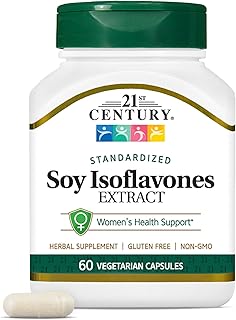A recent analysis suggests that incorporating soy, nuts, beans, and whole grains into the diet may help prevent breast cancer recurrence. Research has shown that a higher intake of soy isoflavones, in particular, is associated with a decreased risk of cancer returning. These findings emphasize the potential benefits of certain nutrients in reducing the likelihood of cancer recurrence.
The study conducted by researchers at Johns Hopkins University and other institutions indicates that while the exact optimal dosages of these nutrients remain unclear, there is a positive correlation between their consumption and better outcomes for breast cancer survivors. The research highlights the need for further investigation to determine the most effective dietary strategies for preventing cancer recurrence.
Notably, the study underscores the significance of soy isoflavones in reducing the risk of breast cancer recurrence. Consuming around 60 milligrams of soy isoflavones daily, equivalent to two or three cups of soy milk or a half-cup of cooked soybeans, was linked to a 26% decrease in cancer recurrence. This suggests that incorporating soy-based products into one’s diet could potentially have a protective effect against cancer.
Moreover, the analysis looked at the impact of lignans, found in various plants like seeds, nuts, legumes, and whole grains. High levels of enterolactone, a compound derived from lignans, were associated with a reduced risk of breast cancer-related mortality and overall mortality. These findings support the inclusion of lignan-rich foods in the diets of breast cancer survivors as part of a comprehensive approach to improving health outcomes.
While the study provides valuable insights into the potential benefits of specific nutrients in reducing the risk of cancer recurrence, researchers caution that these dietary changes should not be viewed as a replacement for medical treatment. Instead, a holistic approach that combines proper nutrition with medical interventions is crucial for managing and preventing cancer.
Furthermore, the research suggests that green tea consumption may also play a role in reducing the likelihood of breast cancer recurrence, particularly for individuals treated for early-stage breast cancer. However, the evidence regarding the impact of cruciferous vegetables on breast cancer outcomes remains inconclusive, highlighting the need for further research in this area.
These findings, published in the journal JNCI Cancer Spectrum, offer valuable insights into the potential role of specific nutrients in reducing the risk of breast cancer recurrence. The study underscores the importance of a balanced diet rich in soy, nuts, beans, whole grains, and other plant-based foods as part of a comprehensive approach to managing and preventing cancer.
📰 Related Articles
- Thyroid Ultrasound Reveals Aggressive Cancer Risk: Case Study Insights
- Study Shows MRI and Mammography Outperform Ultrasound for Breast Cancer Detection
- Study Reveals AKT Inhibitor Boosts Survival in Breast Cancer
- Soy Consumption Safe and Beneficial for Cancer Patients: Expert
- MR Elastography Predicts Breast Cancer Treatment Response and Survival






